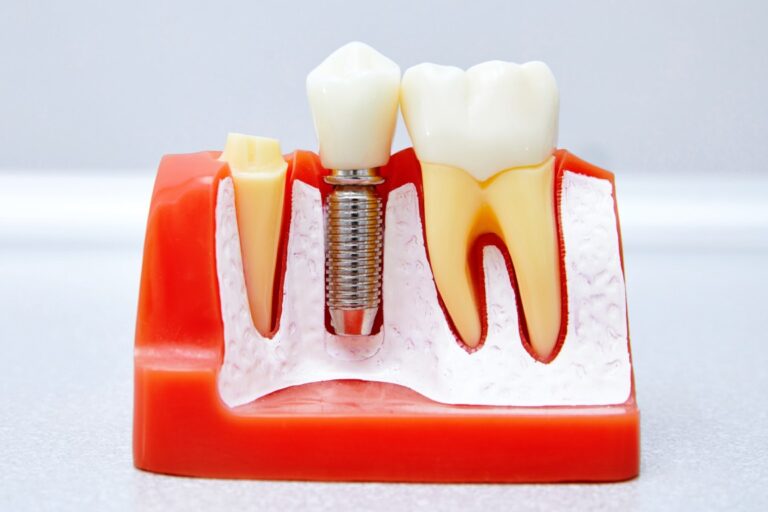Root canals elicit all kinds of emotions from people, but in the end they’re a highly effective way to save a damaged or infected tooth. One common question is, how long will my root canal last? The answer depends on several factors, including the quality of the treatment, aftercare, and your overall oral hygiene. Let’s take a closer look at root canal longevity and how to ensure yours lasts as long as possible.
What Is a Root Canal?
A root canal is a dental procedure that treats infection or damage to the pulp—the soft tissue inside your tooth that contains nerves and blood vessels. When bacteria invade this area due to decay, cracks, or injury, it can cause pain, swelling, and even abscesses.
Root canal therapy involves removing the infected pulp, cleaning out the canals, and sealing them with a biocompatible material. Often, a crown is placed over the treated tooth to restore its strength and function.
Factors That Affect How Long a Root Canal Lasts
The lifespan of a root canal can vary, but many people keep their treated tooth for decades—or even a lifetime—with proper care. Several factors influence how long your root canal will last:
1. Quality of the Treatment
The success of your root canal largely depends on the expertise of the dentist or endodontist performing it. A highly skilled professional ensures the canals are thoroughly cleaned and sealed, reducing the risk of reinfection.
2. The Tooth’s Condition Before Treatment
The initial state of the tooth plays a role in how long the results will last. For instance, teeth with severe structural damage or deep infections may require additional reinforcement, such as a post-and-core or crown.
3. Aftercare and Maintenance
Your oral hygiene routine is critical to maintaining the integrity of your treated tooth. Regular brushing, flossing, and professional cleanings help keep bacteria at bay.
4. Materials Used in the Procedure
Advances in dental materials have greatly improved the durability of root canals. From high-quality sealants to strong crowns, modern treatments are designed to withstand years of wear and tear.
5. Bite Pressure and Daily Use
The forces exerted on your tooth while chewing or grinding can impact its longevity. If you clench or grind your teeth at night, a custom mouthguard can protect your treated tooth from excessive stress.
How Long Does a Root Canal Typically Last?
On average, a root canal-treated tooth can last 10-15 years or more. With excellent care, many people enjoy the benefits of their root canal for decades. In fact, some studies show success rates of 85%-97% over a 10-year period.
The placement of a crown significantly increases the lifespan of the tooth, as it provides additional protection against fracture and reinfection.
Signs a Root Canal May Need Retreatment
While root canals are highly successful, issues can occasionally arise. Here are some signs that your treated tooth may need attention:
1. Persistent Pain or Sensitivity
It’s normal to feel some discomfort for a few days after a root canal, but lingering pain or sensitivity to hot and cold could indicate a problem.
2. Swelling or Inflammation
Swelling around the treated tooth might mean that bacteria have re-entered the canals or that there’s an issue with the surrounding tissues.
3. Damage to the Crown or Filling
Cracks, chips, or wear in your crown or filling can expose the sealed canals, allowing bacteria to infiltrate the tooth again.
If you notice any of these symptoms, don’t wait—schedule a visit with your dentist to address the issue promptly.
How to Extend the Life of Your Root Canal
The good news is that there are plenty of steps you can take to keep your treated tooth in excellent condition for years to come.
1. Practice Excellent Oral Hygiene
Brush your teeth twice a day with fluoride toothpaste and floss daily to remove food particles and plaque.
2. Use a Nightguard if Necessary
If you grind or clench your teeth, ask your dentist about a custom nightguard. This device cushions your teeth and prevents damage.
3. Avoid Hard or Sticky Foods
Chewing on ice, hard candy, or sticky foods like caramel can stress your treated tooth or dislodge your crown.
4. Schedule Regular Dental Check-Ups
Visiting your dentist every six months allows them to monitor your treated tooth and catch any issues early.
What Happens If a Root Canal Fails?
Root canal failure is uncommon, but it can happen if bacteria reinfect the tooth or if structural issues arise. If a root canal fails, your dentist may recommend:
1. Retreatment
This involves reopening the tooth, cleaning the canals again, and resealing them. Retreatment is often successful when done promptly.
2. Extraction
In cases where the tooth can’t be saved, extraction may be necessary. Your dentist can replace the missing tooth with options like implants or bridges.
Conclusion: How Long Can A Root Canal Last
Root canals are an effective, long-lasting solution for saving a damaged or infected tooth. With proper care, your treated tooth can last for decades, allowing you to enjoy a healthy, functional smile.
If you’re experiencing symptoms like pain, swelling, or sensitivity after a root canal, don’t hesitate to reach out to your dentist. Remember, regular dental check-ups and a strong oral hygiene routine are your best defenses against future problems.
Still have questions about root canal treatments or aftercare? Book an appointment today—we’re here to help!




